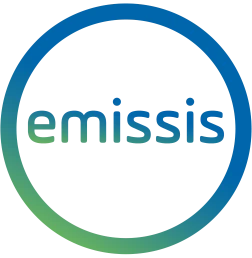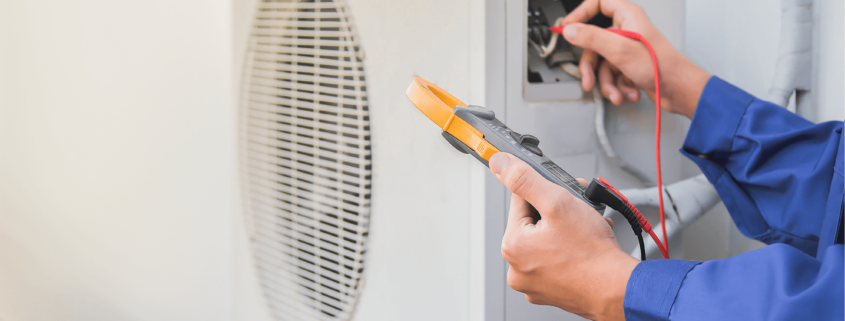The Environmental Cost of Refrigerant Gas Leakage
Let’s Talk Gas!
There is mounting pressure in the food sector to find greener energy, meet ESG targets, and reduce energy costs, so let’s talk about gas and the detrimental affect of refrigerant gas leakage to the environment.
Refrigeration is the #1 Ranked Solution To Climate Change | Ranked by Project Drawdown*
The food sector relies heavily on refrigeration systems to ensure food quality and safety. These systems use refrigerant gases, which are also used in air conditioning and heat pump applications and can have a substantial environmental impact if not properly managed.
The release of these gases into the atmosphere exacerbates environmental issues, leading to stricter regulations and increased industry scrutiny.
Things that may surprise you about refrigerant gases
- Older refrigerants were discovered to break down in the atmosphere, leading to the Ozone Hole issue and resulting in stricter regulations on their usage.
- Newer refrigerants have a lower ozone depletion potential but can still be significant greenhouse gases.
- Leaked refrigerants can contribute significantly to climate change, so correct handling and recycling is essential.
- Inhaling refrigerant gas can be extremely dangerous.
Refrigerant gas leakage
Emissions from refrigerant leakage contribute significantly to global greenhouse gas emissions, with estimates placing it around 10% of total global GHG emissions.
These gases are potent greenhouse gases, many with a global warming potential thousands of times higher than carbon dioxide; their leakage can adversely affect the environment.
According to the Carbon Trust, the average leakage rate in UK systems is around 20% per year. This equates to an efficiency reduction of around 11%, which directly translates into increased energy costs.
A leaking air conditioning unit consumes almost 20% more electricity than a fully functioning one and a small continuous leak, left unrepaired for three months, could use an extra 10kW in energy before it becomes apparent. Considering the rapid rise in energy prices, this can quickly add up to several thousand pounds.
The leading causes of refrigerant gas leakage include wear and tear, inadequate maintenance and inspection, incorrect installation of refrigeration equipment, and physical damage to refrigeration units during transport or handling.
Gas leakage and the food industry
Refrigerant gas leakage has a detrimental effect on the food industry, causing food spoilage and wastage, resulting in operational and financial losses. Non-compliance with environmental regulations could lead to legal penalties and reputational damage. There is also the health aspect, as exposure to leaked refrigerants can pose health risks to workers and consumers, necessitating costly safety measures and potential liability.
3 ways to stop the leakage
- Regular maintenance and inspection of your refrigeration systems can prevent leaks and ensure optimal performance.
- Designing refrigeration systems with modern, safer refrigerants, high-quality components and robust testing and maintenance regimes.
- New technical advances include leak detection systems that use sensors and monitoring devices to identify leaks in real time.
Benefits of gas detection technology
Gas leak detection systems offer many benefits. They alert building occupants to the problem, enabling them to evacuate the area and thus minimising their risk of exposure. They ensure that proper procedures are activated and corrective action can be taken. They also minimise the risk of irreversible damage to equipment and prevent potentially harmful environmental impacts.
Functional and efficient HVAC (heating, ventilation, and air conditioning) systems are not only an integral part of modern buildings but also a fundamental operational requirement.
Turning to technology will ensure that, should a refrigerant gas leak occur, it is quickly identified and repaired, helping to keep energy consumption in check, a win for your people, your pocket and the environment.
Let us help you on your net zero journey
Emissis is a leading energy, carbon, and cost-reduction provider based in the UK, Ireland, and Switzerland. It is also an independent supplier of power and cooling solutions for critical, industrial, and commercial operations.
We deliver a robust suite of globally patented, innovative energy reduction solutions for our clients using comprehensive tools to monitor, report, optimise, and significantly reduce their carbon emissions and energy usage. You can find out how we have helped other organisations reduce their energy costs here.If you would like to have a discovery call with one of our experts to find out how much energy we could save your organisation, please contact us.
References:
* Project Drawdown is a collection of scientists who aim to rank all possible solutions to climate change by CO2e sequestered/not emitted by 2050.
The Global Cooling Pledge, a first‑of‑its‑kind political initiative dedicated to sustainable cooling, has three primary aims: to reduce cooling‑related emissions by 68% relative to 2022 by 2050; to greatly increase access to sustainable cooling by 2030; and to increase the global average efficiency of new air conditioners by 50% through
raised ambition and international cooperation. Coolcoalition.org
Long Term Effects of HVAC Gas Leaks Modern Building Services




